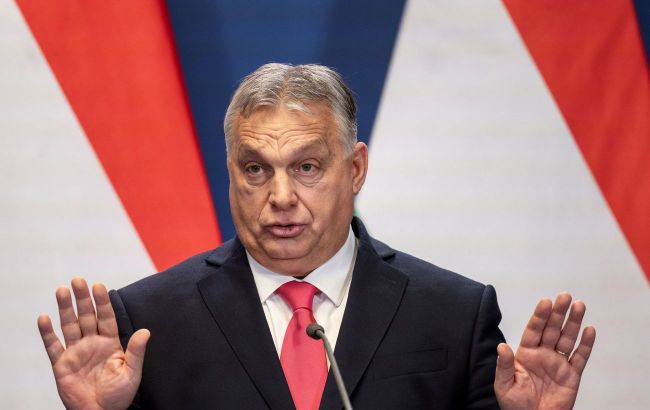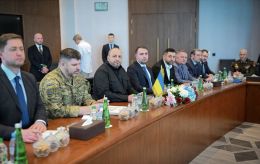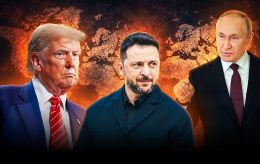Viktor Orbán urges Russia and Ukraine to sign peace deal in Budapest
 Hungarian Prime Minister Viktor Orbán (Photo: Getty Images)
Hungarian Prime Minister Viktor Orbán (Photo: Getty Images)
Hungarian Prime Minister Viktor Orbán stated that a peace agreement between Russia and Ukraine will be signed in Budapest, according to an interview with M1 TV.
The Prime Minister emphasized that the Budapest peace summit will take place, calling it a fact, but did not specify when exactly.
In the interview during his visit to the Vatican, Orbán also mentioned the peace summit in Sharm El-Sheikh.
“The involved parties, including the Americans, negotiated for a long time, and then on Saturday said that the signing would take place on Monday. That’s how it should be imagined. So, in 2–3 days, peace could be established and the agreement signed,” he said.
According to Viktor Orbán, peace between Russia and Ukraine can only be achieved with the involvement of external powers.
He stated that someone needs to negotiate peace with the Russians - either the US or Europe.
“Europe does not want to negotiate with Russia, which is a catastrophic mistake. The Americans are negotiating, and they will decide the future of Ukraine and the issue of Europe’s security in an agreement with Russia. And we Europeans behave as if we like it and will applaud,” he noted.
The Hungarian Prime Minister believes that European leaders should engage directly with Russia, start negotiations, and reach a Russia-Europe agreement on the European security system as well as on Ukraine’s future.
Trump’s planned meeting with Putin in Budapest, which did not take place
In October, US President Donald Trump announced a meeting with Russian President Vladimir Putin in Budapest following their phone conversation.
Budapest is historically significant as the city where the 1994 Memorandum was signed, under which Ukraine gave up its nuclear weapons in exchange for security guarantees from Russia, the US, and the UK.
However, over time, the Kremlin began seeking excuses to avoid the talks, setting its own conditions and justifications.
Ultimately, on October 22, Trump said he had not yet decided on the meeting with Putin.
Hungarian Foreign Minister Péter Szijjártó accused the so-called pro-war political elite and media under its influence of attempting to sabotage the planned Trump-Putin meeting.

